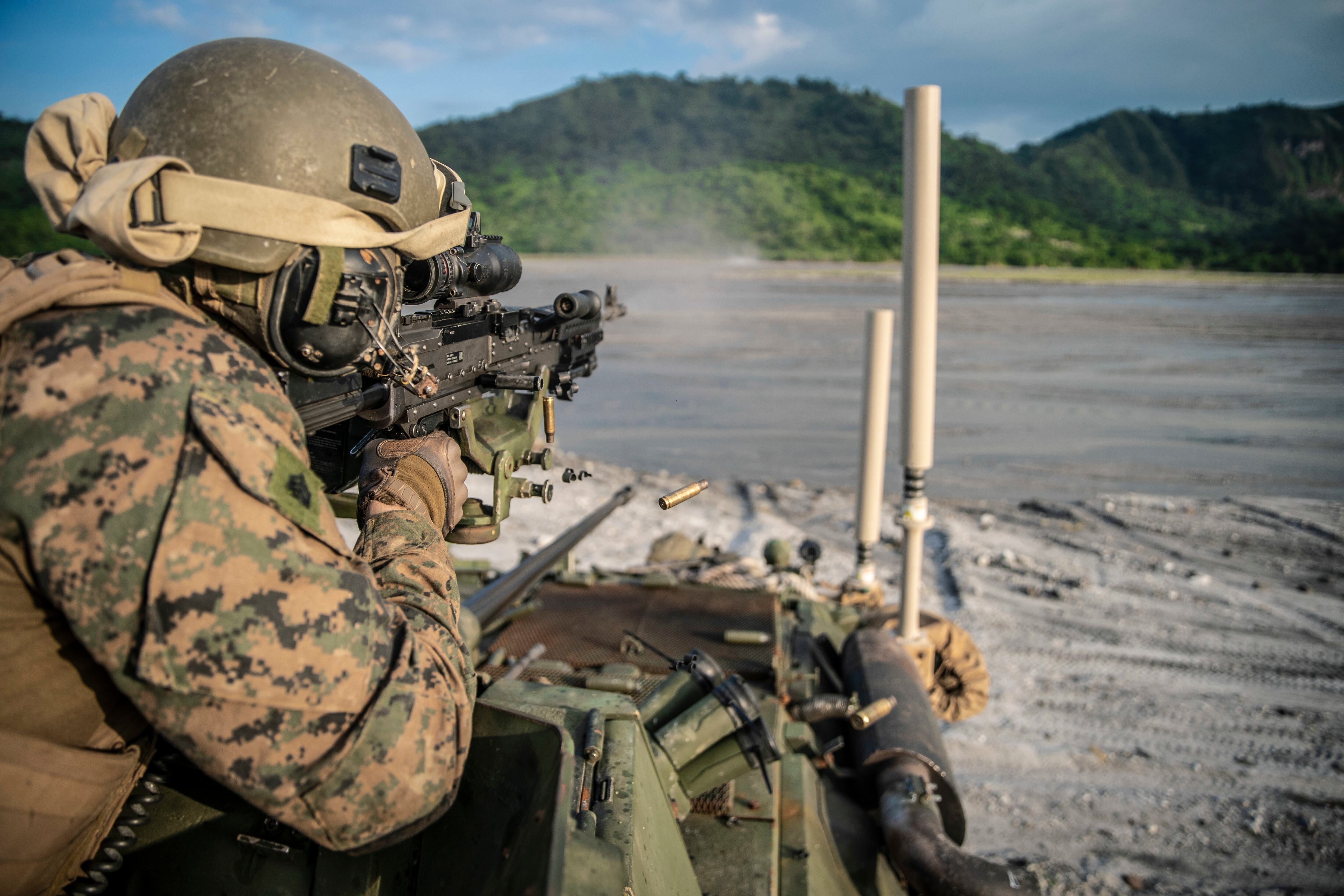The Pacific-focused Marine Expeditionary Forces are both putting together war fighting concepts specific to how they will fight China with their respective fleets.
Maj. Gen. Paul Rock, director of Marine Corps strategy and plans, told an online audience at this year’s virtual Modern Day Marine Exposition that, Okinawa, Japan-based III MEF is working with 7th Fleet while California-based I MEF is nailing down details with 3rd Fleet.
He didn’t provide a timeline and declined to reveal details of the war fighting concepts that each of the major forces are creating but said they began the process a year ago, shortly after the commandant’s planning guidance was released.
RELATED

Commandant Gen. David Berger’s guidance has shifted the Corps' focus to a lighter force teamed with its Navy partner to provide combat capabilities that the fleet needs to deter and defeat China along a spectrum of conflict.
And that has all eyes on III MEF, as it sits withing firing distance of China.
But what that might look like remains to be seen for the rank and file. Rotational forces to the Indo-Pacific Command theater of operations will continue to be in demand, likely moreso.
But the Marines who traveled to Okinawa, Japan, or sailed the seas with the 31st Marine Expeditionary Unit a year or two ago might see a different kind of Corps operating when they return in the coming years.
That’s because the Marines are creating entirely new units, such as the Marine Littoral Regiment and using such formations in either updated or novel ways, building on yearslong developed concepts such as distributed maritime operations, littoral operations in a contested environment and expeditionary advanced base operations.
Those are all detailed plans that seek one simple but difficult solution: how to counter China’s anti-access capabilities, mass and firepower should a shooting war break out.
Rock called distributed maritime operations specifically “superbly applicable” to operations in INDOPACOM.
The idea is to “mass effects without massing forces,” he said.
Beyond missile launches and strikes, Rock and others speaking at the event this week also have emphasized that the battle is already being fought. That’s happening in the virtual space and with a vast array of sensors, continually detecting the threats.
As a young officer, Rock may have thought of riot gear and crowd control when someone mentioned “non-lethal, non-kinetic” effects.
Now, it means 24/7, 365-day a year probing of networks, and a young Marine officer in his boots today would have to think more about protecting that network.
While the details of these concepts and war plans may be developing and evolve, one thing is certain — Marines are going to be working alongside and inside Navy units, whether that’s simply planning or actual combat.
And that goes beyond our Navy and extends to partners and allies in the region, Rock said.
“I think the exercises will continue to evolve, especially as we bring new capabilities brought by force design,” Rock said.
Todd South has written about crime, courts, government and the military for multiple publications since 2004 and was named a 2014 Pulitzer finalist for a co-written project on witness intimidation. Todd is a Marine veteran of the Iraq War.




